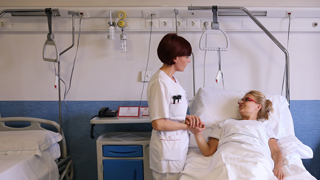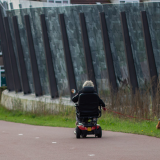
Offentlige serviceydelser
Offentlige serviceydelser såsom sundhed, uddannelse, social omsorg og transport er afgørende for at opnå et højt niveau af social beskyttelse, social samhørighed og social inklusion. Men det er kvaliteten af og adgangen til serviceydelser, der afgør deres succes i et socialt og demografisk landskab i forandring.
Udfordringen for de politiske beslutningstagere er at sørge for at udforme og levere sundheds- og socialydelser, der opfylder borgernes forskelligartede behov. Denne udfordring er blevet forstærket af alvorlige finansielle begrænsninger i de seneste år og af en stigende efterspørgsel, som skyldes dels den demografiske ændring, dels tilstrømningen af flygtninge til Europa. Foruden økonomisk overkommelighed og kvalitet opstår der også nyere problemstillinger. Disse omfatter risikoen for, at nye digitale kanaler til levering af serviceydelser kan isolere i forvejen udsatte lokalsamfund, og potentielle vanskeligheder ved at sikre standarder for adgangen til og kvaliteten af serviceydelser.
I Kommissionens sociale investeringspakke, der blev lanceret i 2013, opfordres medlemsstaterne til at lægge større vægt på offentlige serviceydelser af høj kvalitet. Endvidere lægger Kommissionens strategi for et digitalt indre marked i EU, der blev vedtaget i 2015, vægt på at modernisere de offentlige serviceydelser som en måde at styrke konkurrenceevnen på. Indførelse af nye teknologier, offentlige serviceydelser på internettet og grænseoverskridende interoperabilitet er afgørende for at øge omkostningseffektiviteten og kvaliteten af serviceydelserne. I april 2017 lancerede Kommissionen den europæiske søjle for sociale rettigheder, som omfatter adgang til uddannelse af god kvalitet, førskoleundervisning og pasning, sundhedspleje, socialt boligbyggeri og andre grundlæggende serviceydelser blandt hovedprincipperne.
- Europa-Kommissionen: Den sociale investeringspakke
- Europa-Kommissionen: Det digitale indre marked
- Europa-Kommissionen: Europæisk søjle for sociale rettigheder



























